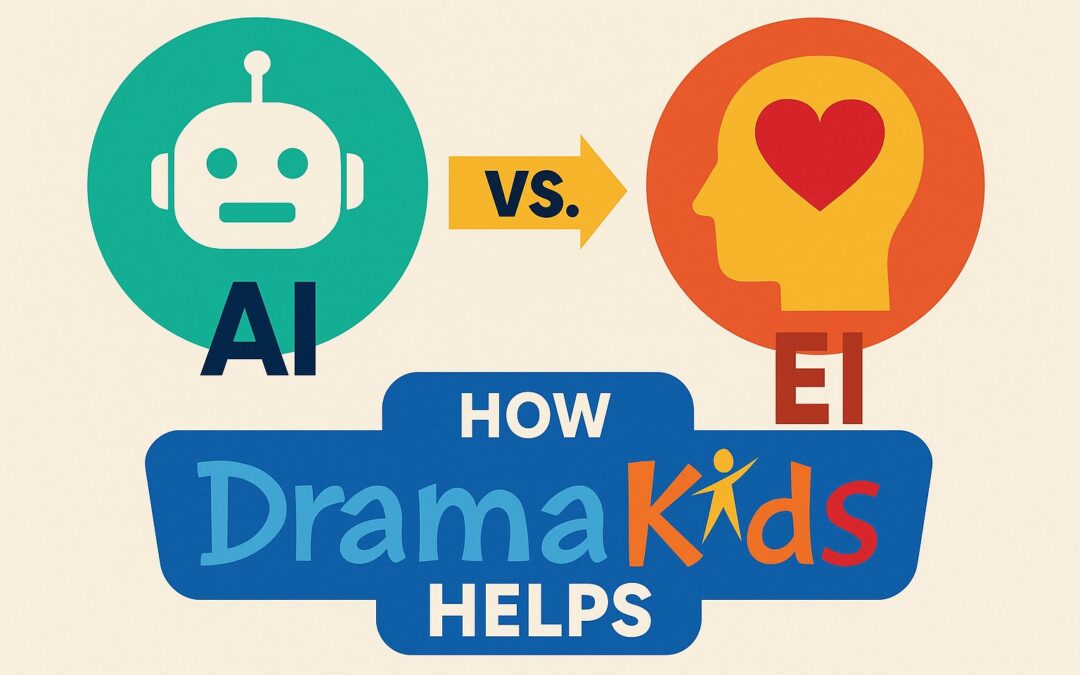Artificial intelligence (AI) has rapidly become one of the most transformative forces in modern society. From automating tasks to revolutionizing healthcare, education, and entertainment, AI is reshaping how we work and interact with the world. However, while AI excels in efficiency and data-driven decision-making, it lacks something fundamental to human connection—emotional intelligence (EI). As AI expands, developing emotional intelligence has never been more important, and programs like Drama Kids play a crucial role in nurturing this essential skill.
How AI Is Changing the World
AI has seeped into nearly every industry, redefining processes, enhancing productivity, and even altering human behavior. Here are just a few areas where AI is making a significant impact:
Workplace Automation: AI-driven tools streamline tasks that once required human labor, leading to increased efficiency but also concerns about job displacement.
Education Transformation: AI-powered tutoring systems personalize learning experiences, helping students grasp concepts at their own pace.
Healthcare Innovation: AI assists doctors in diagnosing diseases with remarkable accuracy, reducing human error in medical practice.
Customer Experience Enhancement: Chatbots and virtual assistants provide instant responses to customer inquiries, changing the landscape of service industries.
Despite these incredible advancements, AI remains incapable of understanding emotions, making ethical judgments, or fostering deep human connections. This is where emotional intelligence comes in.
Why Emotional Intelligence Is More Important Than Ever
Emotional intelligence—the ability to recognize, understand, and manage one’s emotions while effectively interacting with others—is crucial in personal and professional life. Unlike AI, emotional intelligence is the foundation of empathy, adaptability, and authentic human relationships. As AI takes over tasks that require logic and pattern recognition, EI ensures humans excel in areas that require communication, creativity, and moral reasoning.
Consider the following ways emotional intelligence is irreplaceable:
Leadership & Collaboration: AI can analyze trends, but a leader with emotional intelligence can inspire and uplift a team.
Mental Health & Well-being: No algorithm can provide the depth of human empathy needed to support someone going through emotional struggles.
Ethical Decision Making: AI can process data, but EI ensures choices are made with compassion, fairness, and human values in mind.
Creativity & Expression: AI generates art and music, but human emotional intelligence is the source of storytelling, cultural connection, and artistic passion.
With AI growing rapidly, developing emotional intelligence must remain a priority—and this is where programs like Drama Kids step in.
The Role of Drama Kids in Nurturing Emotional Intelligence
Drama Kids is a program designed to help children strengthen their emotional intelligence through drama, creative expression, and communication exercises. It provides young minds with the opportunity to practice empathy, emotional regulation, and interpersonal skills—abilities that will be invaluable in a world increasingly shaped by AI.
Through acting, role-playing, and group activities, Drama Kids fosters:
Confidence & Public Speaking Skills: Teaching kids how to express themselves effectively in social and professional settings.
Empathy & Perspective-Taking: Encouraging children to embody different characters, helping them understand others’ emotions and experiences.
Resilience & Adaptability: Preparing kids to handle challenges with emotional awareness and self-assurance.
Teamwork & Social Bonds: Strengthening communication, cooperation, and trust—skills that AI will never truly master.
Embracing Both AI and EI for a Balanced Future
AI will continue to reshape the world, but emotional intelligence remains irreplaceable in fostering meaningful human interactions. As society becomes more technologically driven, programs that nurture emotional intelligence—like Drama Kids—will be crucial in ensuring future generations can connect, empathize, and lead with heart.
AI and EI are not competing forces. Rather, they complement each other—one providing efficiency, the other ensuring humanity remains at the core of progress.
So, as artificial intelligence advances, let’s remember that the true magic still lies in human connection.
About the Author:

